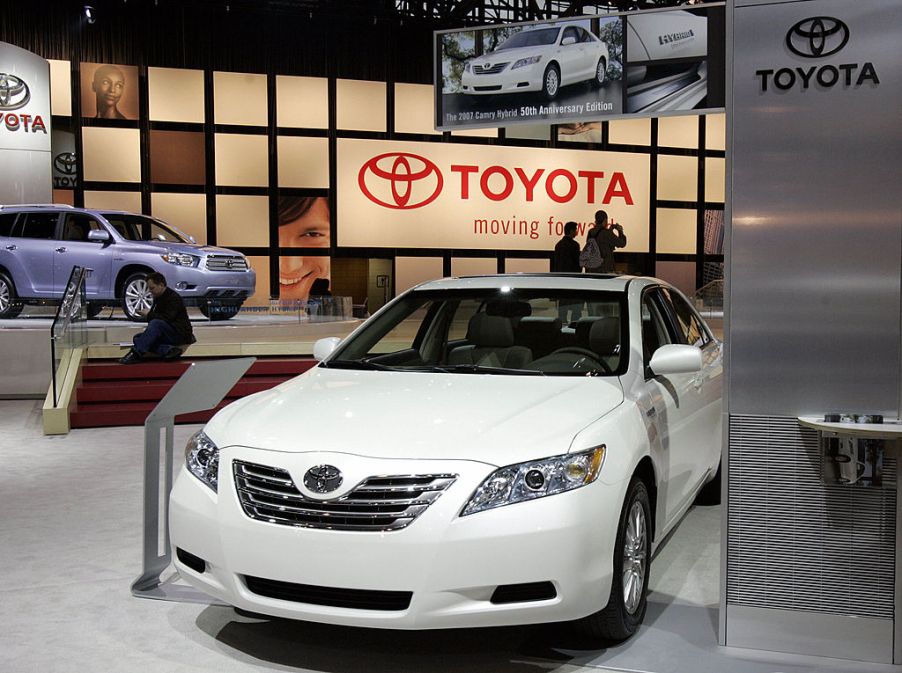
Is the Toyota Camry Hybrid a Reliable Car?
The Toyota Camry Hybrid is one of the most popular hybrid cars on the market. Reasonably priced and loaded with features, it’s easy to see why.
But is the Camry Hybrid everything it’s cracked up to be? We’ll be taking an in-depth look at the Camry Hybrid, from its best features, reliability, and drawbacks. All this, to see what sets it apart from the rest of the Toyota Camry family.
Everything you need to know about the Toyota Camry Hybrid
The Toyota Camry Hybrid originally began production back in 2006 and was one of the first midsize sedans offered as a hybrid, according to MotorTrend.
The original Camry Hybrid ran a 2.4-liter, four-cylinder engine that was combined with an electric motor and trunk-mounted battery, and produced 186 hp. Now in its second generation and recently redesigned, the Camry Hybrid is now offered in multiple variants and trim levels.
Best features and stats
Since the second generation model has hit the production line, newer Camry Hybrids are designed for better fuel efficiency and increased power.
The 2019 Camry Hybrid comes standard with a 2.5-liter four-cylinder, in-line engine that produces 208 hp and 163 lb-ft of torque, an electric motor, and a battery to the power the motor. The Hybrid’s type of battery it uses, however, is dependent on the trim level. The base-level Camry Hybrid uses a lithium-ion battery, while upgraded trim levels use a nickel-metal-hydride battery.
While upper trim levels sacrifice a little in the way of fuel economy, the Toyota Camry Hybrid still earns an estimated 51 MPG in the city and 53 MPG on the highway. All trims use a CVT (continuously variable automatic transmission) with manual mode, on a front-wheel drivetrain. The Camry Hybrid also uses regenerative brakes that offer stronger acceleration and efficiency at the pump.
The spacious 5-seater sedan is loaded with modern touches like an impressive touchscreen, push-button start, and a recently-updated infotainment system. There’s plenty of cargo space, with one of the largest trunks in a midsize sedan. You’ll also find rearview cameras and a slew of safety features come standard in every Camry Hybrid. These include steering assist, pedestrian detection, and lane departure warning.
It’s been ranked number one in midsize cars, as well as taking the number one spot overall for hybrid and electric cars, according to U.S. News Cars. It’s easy to see why with superb safety scores, as well as unrivaled reliability.
All Camry Hybrids come with Toyota’s three-year/36,000-mile basic warranty, as well as a five-year/60,000-mile powertrain warranty and an eight-year/100,000-mile warranty for hybrid-specific components.
Drawbacks
Even though innovation and performance have come a long way, most hybrids still haven’t found the perfect balance between fuel economy and power.
This is still true for the Toyota Camry Hybrid, which may not have the acceleration of your standard gas-powered vehicle. The regenerative braking can also be clunky while transitioning, according to Edmunds. And compared with competition currently on the market, the Toyota Camry Hybrid has a more expensive price tag.
Camry Hybrid vs. the standard Camry
When compared to Toyota’s non-hybrid Camry, the Camry Hybrid offers better fuel-efficiency. Where the hybrid offers an average of 51 MPG in the city and 53 MPG on the highway, the Camry offers a substantially-lesser average at 28 MPG in the city and 39 MPG on the highway.
You’ll have to pay extra for this efficiency however, as the Hybrid will cost you more than the standard Camry. Average MSRP of a standard Camry begins at $24,095-$34,850, while the Camry Hybrid starts at $28,250-$32,825, according to U.S. News Cars. But saving money at the pump will help because the Camry Hybrid could save you an estimated $400 every year in fuel.


